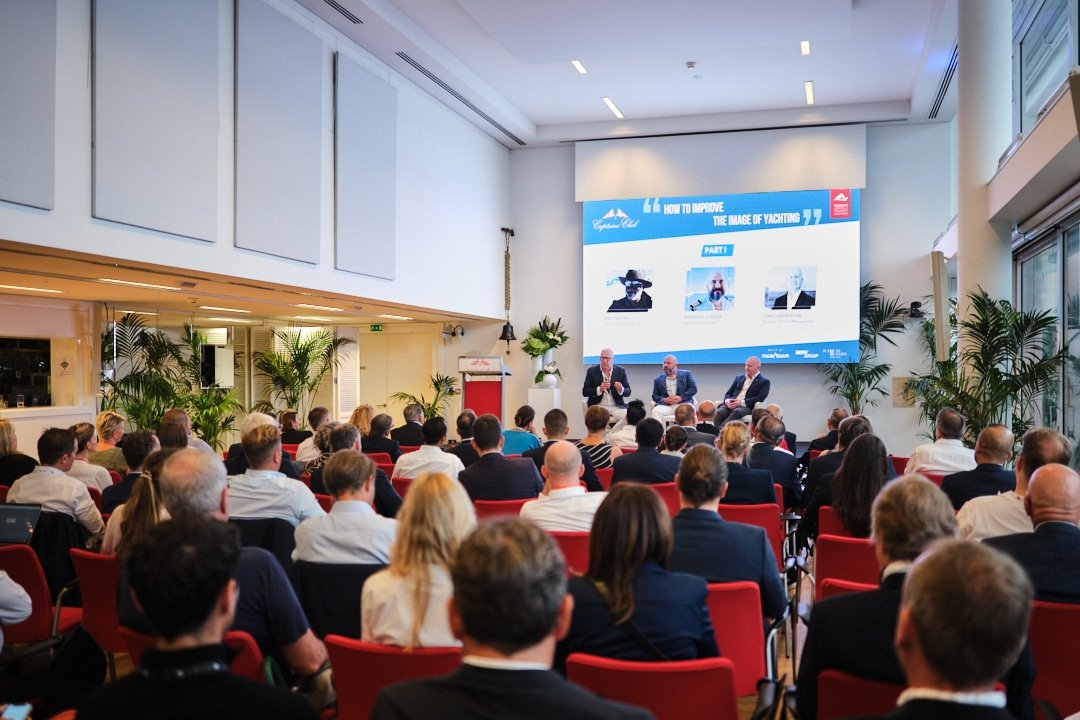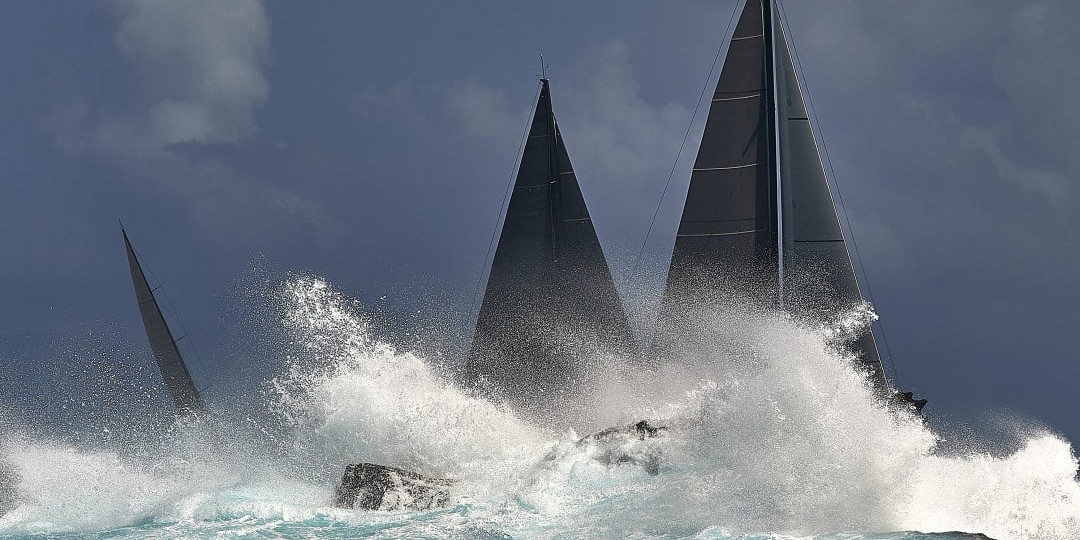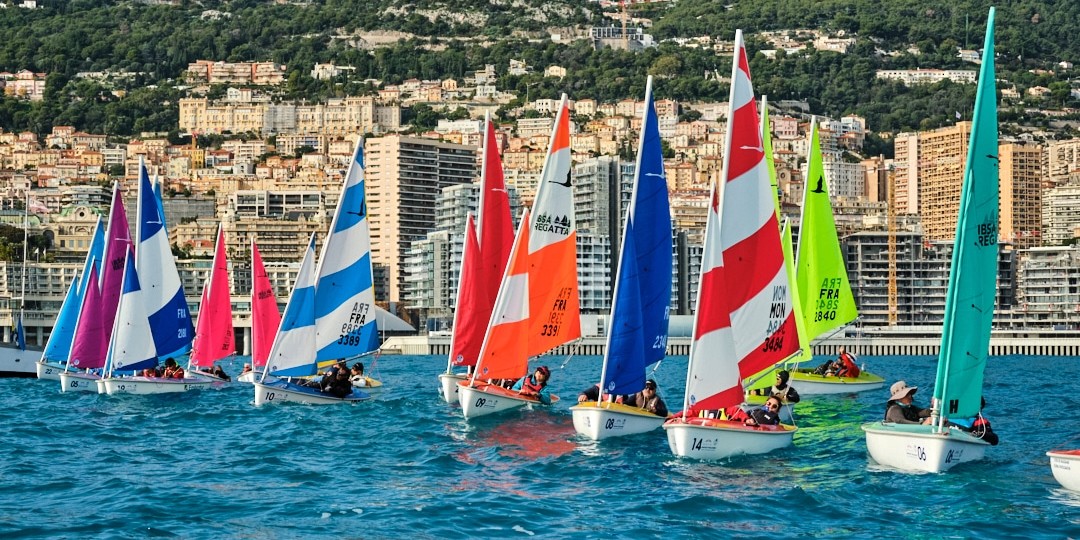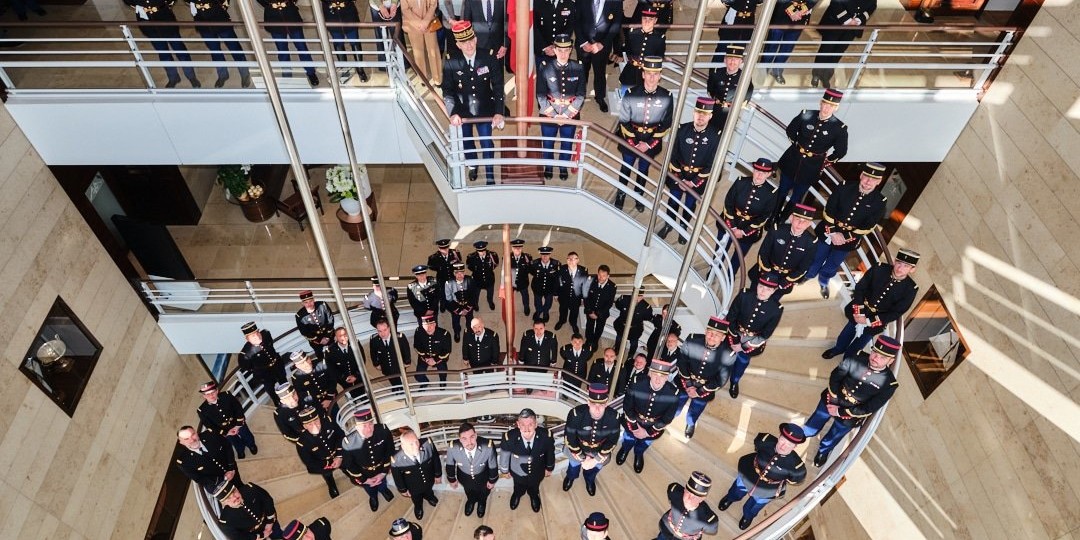29th Captains’ Forum
On International Maritime Organization (IMO) World Maritime Day, the day after the Owners’ Lunch, Yacht Club de Monaco held its annual Captains’ Forum that gathered over a hundred superyacht captains, the linear length of their commands totalling 4,200m, and industry specialists. The meeting is in line with the collective ‘Monaco, Capital of Advanced Yachting’ approach and saw some fascinating discussions on the image of yachting. Before the 29th Captains’ Forum, a survey conducted among 130 superyacht captains revealed key trends affecting the sector’s future.
“It is up to us to maintain the yachting sector at its current level while reflecting on future risks to ensure its prosperity and working together to chart a course towards a sustainable future,” began Bernard d’Alessandri, YCM General Secretary and President of Cluster Yachting Monaco. “YCM continues to assert itself as a key player in the development and promotion of sustainable yachting. One of the essential pillars of this mission is its Captains’ Club”. This unique initiative brings together over 150 superyacht captains, all holding a Captain 500 license or equivalent. Since its creation in 2007, this club has strengthened collaboration between captains and yacht owners, while providing the Y.C.M. with a privileged platform to share its vision and expertise on industry developments. This event highlights the growing importance of the Captains’ Club, not only for addressing current challenges but also for shaping future trends in yachting.
Cristina Ruiz, Superyachts Relations Manager at the YCM, went on to explain “The recent spate of environmental protestor groups’ attacks on yachts in marinas has made it clear: the yachting industry needs to improve its image.” and invited speakers to the stage to discuss possible solutions to enforce a change.
Yachting’s image and importance of leadership
The first session moderated by The Superyacht Group founder Martin Redmayne gave the floor to Anil Thadani, owner of M/Y Latitude (45m) and winner of the YCM Explorers Awards 2024. He spoke again about his vision for responsible usage of superyachts and emphasised the key role of owners in initiating change.
“Push your owners. Don’t be content to keep the boat in the marina. Push the boundaries,” he advised the captains. “It’s really about discovering parts of the world that are otherwise inaccessible, parts of the world that you can learn to appreciate,” he continued, while recalling that it is the owners’ responsibility to prove that yachting can make a positive contribution to society by adopting more eco-friendly practices.
“We have an image to manage, internally and externally,” pointed out Martin Redmayne who called for an industry image reboot by telling more authentic and positive stories. “This summer social media went wild. A series of negative publicity linked to yachting had such a high profile that everyone was asking questions”.
The session then explored the importance of leadership in managing crew. Experienced captain Brendan P. O’Brien led the discussion on social skills required for good leadership, highlighting the role of active listening. “The number one topic on my agenda at the moment is the mental health of captains and managers. If we can’t take care of ourselves, how can we take care of others and how can we communicate?”. A captain’s ability to actively listen and communicate effectively is what separates a great leader from a good leader. He also stressed the importance of soft skills in managing crew, an aspect often neglected in the conventional training pathway for captains.
Yacht Management Director Chris Andreason focused on technical and social skills, emphasising the need for ongoing training on this aspect: “Just because you have a certificate or have read a book doesn’t mean you’re a good captain. It takes time, reflection and constant learning. I think we need to give them time to excel. That’s what we should be doing, excelling, not just doing the minimum”.
Technological innovation and ecological practices in yachting
The second half of the meeting, moderated by Alice Williams, Vice-President of Schneider Electric, focused on the environmental and technological challenges of superyachts: “Since 2008, 376 million people have been displaced due to climate events. And by 2050, one billion people could be in danger, just living in coastal areas”.

Towards greener yachting: an imperative for the future
The discussion moved on to the question of good practices on board to ensure a sustainable future for the industry. Pieter Ferreira Master Mariner, captain of 140+m yachts, launched a call to action to make yachting greener by introducing the YCM’s Blue Pledge initiative, an eco-charter developed with 150 members of the Captains’ Club: “It’s also about helping crew to act responsibly, environmentally, when carrying out their duties, while meeting the requirements of modern yachts. And I think if this commitment could be adopted by the majority of yachts in the world, we’d stand a real chance of making a difference”.
Captain Ferreira went on to explain that in his opinion, the future of yachting will, out of necessity, involve alternative zero-emission energy solutions. He challenged “the yacht owners, builders, classification societies and flag states to ensure that yachts become emission free and that in the next few years no more diesel-powered yachts are built”.
A key finding of the survey ran among captains ahead of the forum was that 62% of them consider ocean protection to be essential, while a majority see environmental regulation as a priority: 30% anticipate the introduction of stricter regulations on emissions, underlining the growing importance of sustainability in the industry. 45% of captains highlighted the importance of adopting alternatives such as hydrogen, biofuels and hybrid engines.
The survey also found that 48% of captains surveyed are increasingly interested in less traditional destinations such as Greenland, Antarctica and the Galapagos Islands, highlighting the appeal of more sustainable yachting and having respect for fragile environments. Concerns over the professionalism of crews were also raised with 26 respondents expressing concerns about the quality of training for new crew members, particularly in terms of sustainability.
Natalie Quévert, Project Manager of the Superyacht Eco Association, presented the SEA Index®, a standard of reference to assess CO2 emissions on large leisure yachts. “We need to integrate environmental standards into yacht management in the coming years,” she said. “Many captains are now aware of this. Our main mission is to support owners”. The SEA Index® plays a key role in providing practical solutions to assess and reduce superyacht emissions. “Recently we have expanded our scope of action beyond Monaco and now have partnerships with 15 marinas and harbours in the Mediterranean, and have signed an agreement with the Seychelles,” she concluded.
After a short break, Pietro Borgo, captain of the Moonflower (72m) project, reopened the discussions with a presentation on integrating green technologies into his yacht’s construction. “It’s time to change our mindset as captains. We have spent too much time focused on the present and immediate costs. We must now pay more attention to the future. The owner should have 100% confidence in us; we need to become their advisors”.
Captain Rainier Roumieh, Fleet and Newbuild Manager, shared his experience of the Arrow (77m hybrid) project and the challenges of building hybrid yachts. “We need to build on our experience while incorporating the maximum available technology as what is new now will be obsolete in five years. It’s impossible to know everything so it’s vital to build a team where each member is specialised in a specific task. Innovation and experience must be aligned to overcome financial and technological obstacles, while meeting owners’ expectations”. He spoke of the many challenges, including the rapid evolution of technologies and cost management. “Building a yacht is very expensive and we need to be attentive to the shipyard’s financial situation to avoid budget overruns”.
Captain Sean Rysenbry, in charge of the hybrid-electric catamaran M/Y Seawolf X (42.75m), explained how artificial intelligence (AI) is used on board to optimise energy consumption: “With AI we can analyse energy usage in real time and reduce consumption peaks by adjusting equipment”. He added that the goal of their project is to show that “yachting and ecology can coexist” with optimised resource management like having solar panels and batteries so a yacht can operate 100% in electric mode. It is important to note that 60% of the captains surveyed foresee a vital role for AI and automated navigation and management systems over the next ten years.
A forum looking to the future
The 29th Captains’ Forum highlighted a consensus among captains: the yachting sector needs to evolve quickly to meet the ecological and social expectations of the 21st century. The Captains’ Club serves as a unique forum where captains, at the forefront of yachting operations, can share their hands-on experiences. This privileged connection with the Y.C.M. allows for the discussion of crucial issues such as environmental sustainability, technological innovations, and enhancing the image of yachting in the face of environmental criticism.
Industry professionals meet again on 9th October for the Winter Pop-Up organised by Cluster Yachting Monaco, a platform for dialogue and networking with decision-makers that has 90 members.
Dernières publications
22 November 2024
Michael Kurtz winner of The Delegates Prize
Yacht Racing Image Award Since its launch in 2010, the Yacht Racing Image Award has been…
21 November 2024
Sailing together: a challenge for all
Navicap Challenge - Trophée Elena Sivoldaeva From 29th November to 1st December 2024, around 60…
17 November 2024
Republican Guard calls into YCM
Yacht Club de Monaco A backdrop worthy of the visit. On the sidelines of Monaco’s National Day on…



